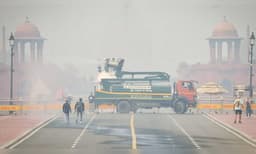Home / Environment / Delhi's Dry Winters Render Cloud Seeding Ineffective for Pollution Control
Delhi's Dry Winters Render Cloud Seeding Ineffective for Pollution Control
1 Nov
Summary
- IIT Delhi report finds Delhi's winter lacks moisture for consistent cloud seeding
- Cloud seeding trials in Delhi-NCR unsuccessful, unlike previous trials in Kanpur
- Sustained emission reduction deemed the best long-term solution for Delhi's air pollution

According to a recent report by the Indian Institute of Technology (IIT) Delhi, the national capital's winter climate is fundamentally unsuitable for consistent cloud seeding as a means of curbing air pollution. The comprehensive analysis, which integrated climatological data from 2011 to 2021, found a critical lack of sufficient moisture and saturation during the peak pollution months of December and January, precisely when such interventions would be most needed.
The report comes in the wake of the Delhi government's unsuccessful cloud seeding trials conducted in collaboration with IIT Kanpur in areas like Burari, north Karol Bagh, and Mayur Vihar. This contrasts with the institute's earlier successful trials in Kanpur in 2017-18, which were the first such experiments in the Delhi-National Capital Region (NCR).




